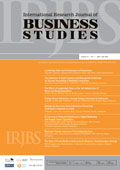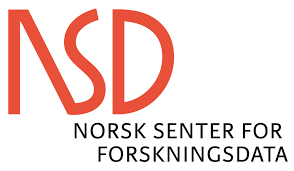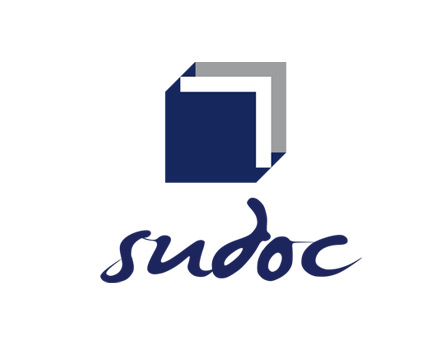Article Metrics |
|
|
Artificial Intelligence for a Better Employee Engagement
Abstract
Employee engagement is the positive attitude of each employee towards the business and the value of the organization. This research aims to see whether the use of AI-based technology, tools, and software can help management detect intangible things such as employee engagement level and provide clues as to what factors influence it and how management can improve it. This research is a qualitative approach. We interviewed the management and selected employees to determine employee engagement at SML before and
after implementing the AI-based application. The interview results compared with the results obtained from the application for six months (Feb - July 2020). The study was conducted on all SML employees, amounting to 39 people. This research has shown that the use of AI based software can significantly help management, not only to find out the status of each employee’s level of involvement but also to anticipate their attitudes and behaviors through predictive indicators. Thus, the company can proactively retain key employees. This research provides new and practical insights and opportunities for company owners and leaders to utilize technology to detect something that is naturally quite difficult because it requires specific knowledge and experience
Keywords: engagement, employee engagement, work engagement, technology, technology enabler, artificial intelligence, software, application.
* Magister Manajemen BINUS Business School, Universitas Bina Nusantara, Jl. Hang Lekir I No. 6, Senayan, Kebayoran Baru, Jakarta Selatan, DKI Jakarta.
Full Text:
References
Bakker, A. B., Albrecht, S. L., & Leiter, M. (2011). Key questions regarding work engagement. European Journal of Work and Organizational Psychology, 20(1), 4–28. Retrieved from https://www.researchgate.net/publication/232938425_Key_questions_regarding_work_engagement/link/5e6273514585153fb3c50f67/download
Bakker, A. B., & Leiter M. P. (2010). Work engagement: A handbook of essential theory and research. New York: Psychology Press.
Bashir, U., & Ismail Ramay, M. (2010). Impact of stress on employees job performance: A study on banking sector of Pakistan. International Journal of Marketing Studies, 2(1), 122-126. Faculty of Management Sciences, International Islamic University Islamabad, Pakistan.
Changing The Way You Communicate. (2019). Retrieved April 20, 2020, from https://feets.me/about.html
Employee Engagement Survey. (2018). Retrieved July 31, 2020, from https://www.staffconnectapp.com/employee-engagement-survey-results/.
Faslah, Roni. (2010). Hubungan antara Keterlibatan Kerja dengan Turnover Intention pada Karyawan PT. Garda Trimitra Utama, Jakarta. EconoSains,Vol. VIII, No.2, hal 146-151.
Federman, Bard.(2009). Employee Engagement: A Road For Creating Profits, Optimizing Perfomance, And Increasing Loyalty. San Fransisco: Josey Bass
Gallup. (2013). State of the global workplace. Washington, D.C.: Gallup.
Gibson, James L., John M. Ivancevich, dan James H. Donnelly. (2003). Organizations Behaviour, Structure and Process. 8th ed. Boston: Richard D. Irwin Inc.
Kahn, W. A. (1990). Psychological Conditions of Personal Engagement and Disengagement at Work. Academy of Management Journal, 33(4), 692-724.
Kazmi, R., Amjad, S., & Khan, D. (2008). Occupational stress and its effect on job performance a case study of medical house officers of District Abbottabad. J Ayub Med Coll Abbottabad, 20 (3), 135-139
Lauby, S. (2012, May 10). Happy employees are not engaged employees. Retrieved July 25, 2020, from https://www.hrbartender.com/2012/recruiting/happy-employees-are-not-engaged-employees/
Lockwood, N. R. (2007, March). Leveraging Employee Engagement for Competitive Advantage: HR's Strategic Role. HR Magazine, 52(3), 1-11.
Lyubomirsky, S. (2008). The how of happiness: A scientific approach to getting the life you want. New York: Pinguin Books.
Markos, S., & Sridevi, M. S. (2010). Employee Engagement: The Key To Improving Performances. International Journal of Business and Management, 5 No. 12, 89-96. Thomas, C. H. (2007). A New Measurement Scale for Employee Engagement: Scale Development, Pilot Test and Replication. Academy of Management Proceedings.
Massingham, P. R., & Tam, L. (2015). The relationship between human capital, value creation, and employee reward. Journal of Intellectual Capital, 16(2), 390-418. Retrieved July 01, 2020, from https://ro.uow.edu.au/cgi/viewcontent.cgi?article=1746&context=buspapers
May, D.R., Gilson, R.L., & Harter, L.M., (2004). "The psychological conditions of meaningfulness, safety and availability and the engagement of the human spirit a work", Journal of Occupational & Organizational Psychology. Vol 77, pp. 11-37
Mobley, W.H., (1977). Intermediate Linkages in the Relationship Between Job Satisfaction and Employee Turnover. Journal of Applied Psychology.
Paul, E. (2017, August 05). Effective Ways to Improve Employee Engagement [Web log post]. Retrieved July 01, 2020, from https://www.emptrust.com/blog/employee-engagement-a-key-hr-strategy
Rashid, H. A., Asad, A., & Ashraf, M. M. (2011). Factors persuading employee engagement and linkage of employee engagement to personal & organizational performance. Interdisciplinary Journal of Contemporary Research in Business, 3(5), 98-108.
Schaufeli, Salanova, Gonzalez-Roma, V., & Bakker, A. B. (2002). The Measurement of Engagement and Burnout: A Two Sample Confirmatory Factor Analytic Approach. Journal of Happiness Studies , 3, 71-92.
Schaufeli, W. B. (2012). Work engagement. What do we know and where do we go?. Romanian Journal of Applied Psychology, 14(1), 3-10.
Sekaran, U., & Bougie, R. (2016). Research Methods for Business (7th ed.). West Sussex, United Kingdom: John Wiley & Sons Ltd.
State of the American Workplace Report. (2017). Retrieved April 29, 2020, from https://www.gallup.com/workplace/238085/state-american-workplace-report-2017.aspx
Copyright (c) 2020 INTERNATIONAL RESEARCH JOURNAL OF BUSINESS STUDIES
International Research Journal of Business Studies has been covered by the following services: | ||||||||||||||||||||||||
|




















